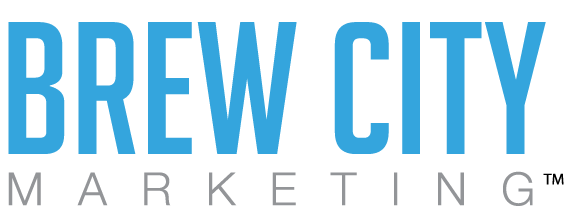
As we’ve pointed out before, AI in marketing is already here and is transforming the way that all types of companies market their products and services, from SMEs to huge multinationals.
We also know that starting to use AI can be a little daunting for small businesses. But here’s a little secret: you don’t have to be an IT pro to make use of these tools, and in fact, you are probably already using them.
Today, we’d thought we’d give you a quick peek at the best (and easiest to use) AI marketing tools out there.
1. Grammarly – Free Grammar Checker
Yep, Grammarly is an AI tool, but you probably haven’t noticed it. That’s why it’s at the beginning of this list: thousands of SMEs are already using AI tools like this without realizing it.
In some ways, Grammarly is a special case, because they don’t make a big thing about the AI technologies that underpin this proofreading tool. But this is precisely what makes the tool so eerily accurate when it comes to making suggestions about your writing.
Grammarly will flag typos and grammar mistakes as you write, and integrates really well with most apps and browsers. It will also keep a log of your most common mistakes, so your writing skills will gradually improve.
Overall, Grammarly is a simple, effective way of improving your written communication, whether you are using it for marketing or anything else.
2. Senseon – Sensory AI for threat detection
On a more serious note, there are also plenty of AI tools out there that can significantly improve the security of your organization. Senseon is one of the best, being both fully-featured but also easy to use.
This system will automatically perform threat scanning and highlight any security vulnerabilities in your system. Just be aware that AI tools like this are not a replacement for rigorous security practices: they will help you to improve your defenses against cyberattacks, but only once the basics are in place.
So make sure you are still using strong passwords, robust firewalls, and choose a well-reviewed VPN app, and that all of your staff know how to spot a cyberattack before you start to rely on an AI to keep you safe.
3. Import.io – Large Scale Data Profiling
Import.io is a really amazing tool for analyzing websites. It will allow you to import huge amounts of data, even if the data you need is behind login forms or other blocks. This data is then fed into analysis software that will produce spreadsheets, visualizations, or even machine learning algorithms.
Import.io has two major uses for SMEs. One is that it will allow you to quickly and easily conduct competitor research, and compile all this data into easy-to-read graphics to inform your ongoing marketing strategy. The other is that you can use it on your own site to delve into user comments and identify areas for improvement.
4. X.ai – Personalized Meeting Assistant
Like Grammarly, X.ai is a great AI tool that gets out of your way and provides a useful service without making a fuss about it.
X.ai is a scheduler, essentially. You CC it’s AI engine from your emails, and the algorithm will automatically help you to schedule meetings. It will suggest times, dates, and venues, and then keep track of responses for you.
5. Uberflip – Content Experience Platform
Uberflip is a more complex AI tool, but one that offers a lot of power when it comes to creating marketing materials. It will allow you to create personalized content for each of your customers, based on their prior activity.
This kind of content personalization used to be the preserve of huge brands like Amazon, who could afford to invest in bespoke AI algorithms. Uberflip brings this kind of functionality to SMEs.
Uberflip is particularly useful for SMEs that have a large and diverse audience since it allows you to create custom, targeted campaigns whilst still being scalable.
6. Acrolinx – Enterprise Content Governance Solution
Acrolinx aims to help you in a different way. It says that it is the only AI engine that is able to “read” your content, via an advanced algorithm that will assess your content and make suggestions as to how you can improve your marketing.
Acrolinx is also useful because you can use it across all the channels you normally use to market your products. It will read your blog posts and make sure they are effective, but it can also make your email campaigns better, and even improve the text on your eCommerce platform.
Tools like this are extremely useful, but you should also be aware that they still require a lot of human input in order to operate effectively. Once you’ve fed Acrolinx some key terms, it will help you to foreground them. But you will still need to identify the audience for your content.
7. BrightFunnel – Predictive Revenue Insights
Once you’ve analyzed your competitors’ content, produced your own, and personalized it, you need to know how effective it is. Unfortunately, systems like Google Analytics can over-complicate the process of assessing your traffic, conversion rates, and ROI (though check out our guide to Google Analytics terms for more detail on that system).
BrightFunnel aims to provide a straightforward, intuitive way to analyze the impact of your content. At a glance, it will show you how many of your visitors are clicking through to your selling pages, and where your leads are coming from.
The AI component of BrightFunnel is what makes it stand out, though. It is able to suggest ways to optimize your sales funnels, identifying bottlenecks or blockages in your customers’ journeys.
A Final Word
This is just a small selection of the AI tools available for SMEs to use today, across a range of different areas.
Any one of these tools can potentially make your advertising more effective, but please don’t rely on them. Whilst you might like an AI algorithm to sell products for you, that’s not going to happen anytime soon. The effect so far is similar to the current AI impact on the job market, that is to say, negligible to slightly noticeable. Small to medium-sized business owners can expect these tools to be only as clever as the (human) using them.
But stay tuned. In a few years, it could be a lot different.




